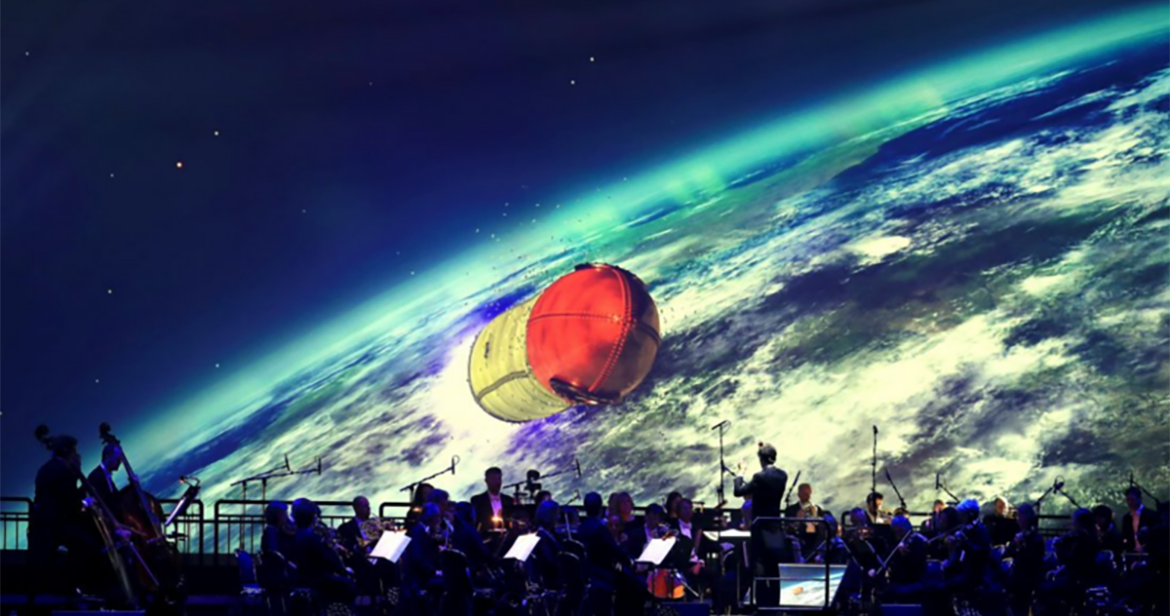In Milan, 14 – 18 October 2024
The International Astronautical Federation (IAF), a staunch advocate for global space cooperation, unites 513 members from 78 countries, including governmental and intergovernmental space agencies, societies, industries, and universities. Celebrating its 70th Anniversary in 2021, the IAF continues to play a crucial role in the realm of space exploration, notably through its annual International Astronautical Congress (IAC). As a member of the IAF, SAB Aerospace is one of the 6,000 global space industry partners participating in this annual event.
The International Astronautical Congress (IAC), an annual cornerstone for space industry stakeholders, is an integral part of SAB Aerospace’s commitment to advancing the industry. Actively participating in the IAC, the company utilises this platform to showcase cutting-edge space technology within manufacturing processes. It provides a vital opportunity for SAB Aerospace to engage in dialogue with industry partners, fostering synergies that fuel excellence and innovation in European aerospace.
SAB Aerospace, a distinguished player in the European aerospace landscape, is thrilled to announce its participation in the congress once again this year in Milan from 14 to 18 October. As a key exhibitor, SAB Aerospace eagerly anticipates showcasing its latest advancements, engaging with industry partners, and exploring potential collaborations. The company has consistently been a presence at the AIC, leveraging the platform to connect with potential partners and contribute to the vibrant aerospace community.
This congress is not only a hub for networking and business opportunities but also facilitates connections with international representatives throughout the advanced space technology supply chain. SAB Aerospace, along with other exhibitors, uses this platform to highlight the latest developments in industry projects, processes, designs, materials, technological advancements, and trends.
About the International Astronautical Federation
The IAF was formed in 1951 to provide an international platform for dialogue among spacefaring nations. The annual International Astronautical Congress (IAC) was established as a neutral ground during the Space Race and has evolved to witness historical achievements and foster collaborations. With a growing membership, including new and emerging spacefaring nations, the IAF facilitates international cooperation through the IAC and various committees.
The International Astronautical Congress (IAC) and SAB Aerospace
Providing a comprehensive overview of space exploration developments, the IAC serves as a meeting point for global space actors. It facilitates networking, contacts, and potential partnerships within the space community. Every year, the congress offers an exceptionally rich programme to its participating delegates, including up to 2000 paper presentations in around 25 parallel sessions on all aspects of the aerospace industry. Top space industry experts deliver keynote addresses and take part in dynamic interdisciplinary roundtables at the plenary panel. There is an international space exhibition, dedicated programmes for students and young professionals, a global networking forum, and many social events.
The IAC Structure: Facilitating Collaboration and Innovation
The IAC’s structure, including the Plenary Programme, Technical Programme, and the IAF Global Networking Forum (GNF), creates a platform for interaction and discussion among diverse stakeholders. Associated and Side Events, such as the UN/IAF Workshop and the Space Generation Congress, complement the IAC program, addressing specific needs within the space community.
A Pragmatic Catalyst for Advancement
The International Astronautical Congress serves as a platform for nations to converge, ideas to flourish, and partnerships to develop. At this annual global space rendezvous, SAB Aerospace’s active participation contributes to the collaborative spirit within the space community. By consistently contributing to the discussions at the IAC, the company solidifies its role as a leading player in shaping the future of space exploration.


